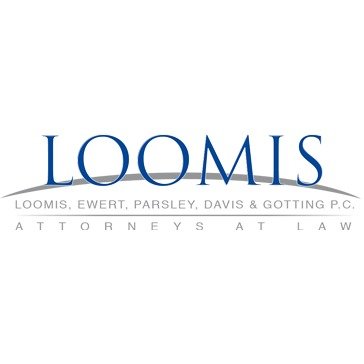Best Private Client Lawyers in United States
Share your needs with us, get contacted by law firms.
Free. Takes 2 min.
Or refine your search by selecting a city:
List of the best lawyers in United States
United States Private Client Legal Articles
Browse our 1 legal article about Private Client in United States written by expert lawyers.
- Estate Tax 2026 Outlook: United States Exemption Sunset Prep
- Federal estate and gift tax exemption is historically high (over $13 million per person in 2024) but is scheduled to drop by roughly half after December 31, 2025. The IRS "use it or lose it" rules let you lock in the current higher exemption with lifetime gifts; if you wait... Read more →
About Private Client Law in United States
Private client law in the United States refers to the legal services provided to individuals, families, and their estates. This field primarily involves estate planning, asset protection, trust administration, tax planning, probate, and succession planning. Private client lawyers help clients protect, preserve, and transfer their wealth efficiently. The aim is to minimize tax liabilities, ensure wishes are carried out, and protect assets for future generations while complying with federal and state laws.
Why You May Need a Lawyer
There are many life events and situations where consulting a private client lawyer is critical. Some common examples include:
- Drafting or updating a will or trust
- Planning for incapacity or medical emergencies
- Protecting assets from creditors or legal claims
- Minimizing estate and gift taxes
- Administering the estate of a deceased loved one
- Resolving family disputes over inheritance
- Establishing guardianships for minor children or incapacitated adults
- Creating power of attorney documents
- Charitable planning and giving
- Advising business owners on succession planning
A lawyer helps ensure your documents comply with current laws, are interpreted as you intend, and are tailored to your unique circumstances.
Local Laws Overview
Private client law in the United States is shaped by a combination of federal, state, and sometimes local regulations. Key aspects include:
- Estate and Gift Taxes: Federal estate and gift tax laws apply nationwide, but states may also impose their own estate or inheritance taxes.
- Wills and Probate: Each state has specific requirements for creating a valid will and different procedures for probating estates.
- Trust Laws: Trusts are governed largely by state law, with differences in how they are established, managed, and terminated.
- Community Property and Marital Rights: States differ in their treatment of marital property, especially in community property states versus common law states.
- Guardianship: Laws regarding guardianship for minors and adults vary by state, affecting how and when someone can be appointed to make decisions for another individual.
- Healthcare Directives: States set their own rules for advance healthcare directives, living wills, and durable powers of attorney.
- Digital Assets: Legal approaches to handling digital assets after death are evolving and often depend on state law.
Because state laws can differ significantly, it is important to work with a lawyer familiar with your state's specific regulations and procedures.
Frequently Asked Questions
What is the difference between a will and a trust?
A will is a legal document stating how you want your property distributed after your death. A trust is a legal arrangement where a trustee holds and manages assets for the benefit of beneficiaries. Trusts can help avoid probate and provide more privacy and control over asset distribution.
What happens if I die without a will?
If you die without a will, known as dying intestate, state laws determine how your property is distributed. This may result in outcomes that do not reflect your wishes, and the process can be more complicated and time-consuming for your loved ones.
How can I minimize estate taxes?
Strategies to minimize estate taxes may include creating certain trusts, making lifetime gifts, and charitable giving. A qualified lawyer can help develop a plan tailored to your specific circumstances.
Do I need a lawyer to create a valid will or trust?
While it is possible to draft simple documents on your own, mistakes or omissions may render them invalid. Consulting a lawyer ensures your documents comply with relevant laws and accurately reflect your intentions.
What is probate and how does it work?
Probate is the court-supervised process of validating a will, paying debts, and distributing assets after someone dies. The process and requirements vary by state, and having a will can streamline probate, but not all assets go through probate.
When should I update my estate planning documents?
It is wise to review and update your documents after major life events such as marriage, divorce, the birth of a child, acquiring new assets, or after a significant change in the law.
How long does the probate process take?
Probate can take several months to years, depending on the complexity of the estate, presence of a valid will, state law, and whether there are disputes among heirs.
What are powers of attorney and why are they important?
A power of attorney is a legal document giving someone authority to act on your behalf if you become incapacitated. They are essential for ensuring your financial, legal, and healthcare decisions can be managed if you are unable to do so.
Who should I name as executor or trustee?
Choose someone trustworthy, organized, and capable of handling financial matters. You can appoint a family member, friend, or a professional such as a lawyer or bank trust officer.
How can I plan for the care of minor children?
You can name a guardian for your minor children in your will. You may also set up trusts to manage financial resources for them until they reach adulthood. Legal advice is crucial to ensure your wishes are clear and enforceable.
Additional Resources
If you need more information or support, consider the following resources:
- American Bar Association (ABA) - Section of Real Property, Trust and Estate Law: Provides educational materials and lawyer directories.
- National Academy of Elder Law Attorneys (NAELA): Focuses on elder law and estate planning resources.
- Internal Revenue Service (IRS): Offers guidance on estate and gift tax matters.
- State Bar Associations: Most state bars provide online resources and lawyer referral services.
- Local Probate Courts: Often have guides and forms for probate and estate administration.
Next Steps
If you believe you need legal assistance with private client matters, consider taking these steps:
- Gather your personal and financial documents, including any existing wills or trusts.
- Make a list of your goals and concerns, such as protecting assets, minimizing taxes, or providing for loved ones.
- Research and contact qualified private client or estate planning lawyers in your area, especially those familiar with your state's laws.
- Prepare questions in advance to ensure your specific needs are addressed during the consultation.
- Stay informed about updates in the law that may affect your plan, and schedule periodic reviews with your legal advisor.
Seeking legal guidance early can help secure your legacy, protect your family, and give you peace of mind about the future.
Lawzana helps you find the best lawyers and law firms in United States through a curated and pre-screened list of qualified legal professionals. Our platform offers rankings and detailed profiles of attorneys and law firms, allowing you to compare based on practice areas, including Private Client, experience, and client feedback.
Each profile includes a description of the firm's areas of practice, client reviews, team members and partners, year of establishment, spoken languages, office locations, contact information, social media presence, and any published articles or resources. Most firms on our platform speak English and are experienced in both local and international legal matters.
Get a quote from top-rated law firms in United States — quickly, securely, and without unnecessary hassle.
Disclaimer:
The information provided on this page is for general informational purposes only and does not constitute legal advice. While we strive to ensure the accuracy and relevance of the content, legal information may change over time, and interpretations of the law can vary. You should always consult with a qualified legal professional for advice specific to your situation.
We disclaim all liability for actions taken or not taken based on the content of this page. If you believe any information is incorrect or outdated, please contact us, and we will review and update it where appropriate.
Browse private client law firms by service in United States
United States Attorneys in related practice areas.
Browse private client law firms by state in United States
Refine your search by selecting a state.
















